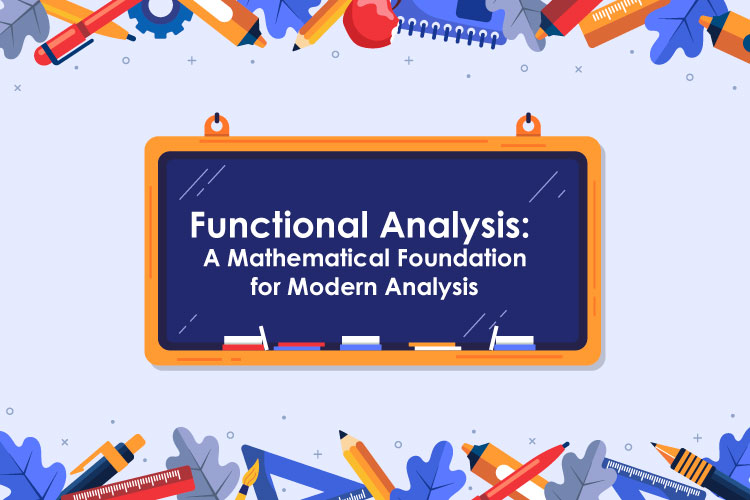Functional analysis is a branch of mathematics that studies functions and their properties. It is a broad field that includes many different topics, such as measure theory, functional spaces, and operator theory. Functional analysis has a wide range of applications in other fields of mathematics, such as differential equations, probability theory, and numerical analysis.
One of the main goals of functional analysis is to develop a mathematical foundation for modern analysis. This means developing a set of tools and concepts that can be used to study functions in a rigorous and general way. Functional analysis has been very successful in achieving this goal, and its tools are now used in many different areas of mathematics.
Here are some of the key concepts in functional analysis:
- Measure theory: Measure theory is the study of how to measure sets. It is a fundamental tool in functional analysis, and it is used to define many important concepts, such as Lebesgue spaces and Hilbert spaces.
- Functional spaces: Functional spaces are sets of functions that share certain properties. They are a central concept in functional analysis, and they are used to study the behavior of functions.
- Operator theory: Operator theory is the study of operators on functional spaces. Operators are functions that take functions as input and produce functions as output. They are a powerful tool for studying the behavior of functions, and they are used in many different areas of mathematics.
Functional analysis is a vast and complex field, but it is also a very rewarding one. It provides a powerful set of tools for studying functions, and it has applications in many different areas of mathematics.
Here are some of the applications of functional analysis:
- Differential equations: Functional analysis is used to study the solutions of differential equations. For example, it can be used to prove that the solutions of a differential equation exist and are unique.
- Probability theory: Functional analysis is used to study probability spaces and random variables. For example, it can be used to prove that the expected value of a random variable exists.
- Numerical analysis: Functional analysis is used to develop numerical methods for solving differential equations and other mathematical problems. For example, it can be used to develop algorithms for approximating the solutions of differential equations.
Conclusion:
Functional analysis is a powerful tool for studying functions and their properties. It has a wide range of applications in other fields of mathematics, and it is a fundamental tool for modern analysis. If you are interested in learning more about functional analysis, there are many resources available online and in libraries.







0 Comments